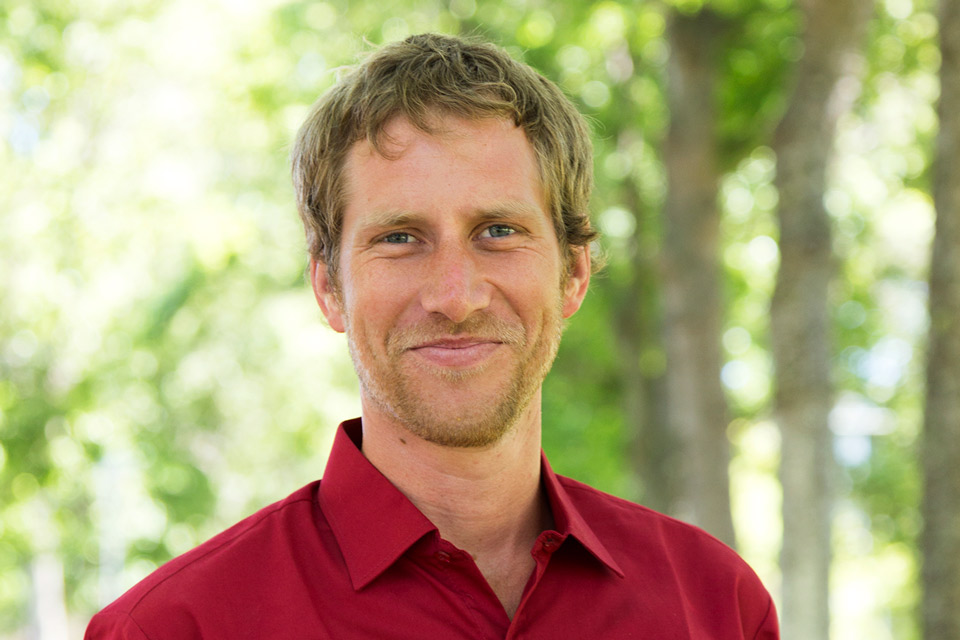What makes democracy tick?
Peter B. Gustavson School of Business
- Carlos Chicas Berti

Students’ Dialogue on Democratic Engagement explores representation and participation
How can we practice democracy in a way that captures and represents the varied interests of all those who rely on it? It’s a question with ramifications for societies and governments around the world. It’s also a question that students at UVic recently undertook to explore for themselves.
UVic’s recent Students’ Dialogue on Democratic Engagement sought to foster student engagement through an innovative technique known as a deliberative mini-public. A practice gaining traction around the world, a deliberative mini-public is a space that brings together a true cross-section of a particular community for the purpose of dialogue on a given topic.
Undertaken by UVic’s Community and Government Relations and Gustavson School of Business professor Simon Pek, in partnership with The Honourable Janet Austin, Lieutenant Governor of British Columbia and 24 students from across campus, the project was a true collaborative effort.
“I volunteered for the dialogue because I felt my knowledge about democracy, how it functions or doesn’t, and how we speak about it, was lacking,” says Isabelle Rutherford, an undergraduate social sciences student who took part in the dialogue.
Part of what makes deliberative mini-publics like the Students’ Dialogue meaningful is the way in which participants are selected—a technique often referred to as a civic lottery. Over 7,500 randomly selected students across the university received an invitation to participate in the dialogue. Interested students completed a short, anonymous survey which gathered demographic data from applicants, after which a final random selection was conducted to pick the final 24 students that would take part as representatives of the student body.
“The idea behind the dialogue was to create a space where students could engage in honest conversations about important and sometimes controversial topics with an eye to ultimately making better decisions that work for everyone,” says Pek, who served as project lead on the initiative. “20,000 people gathered together can’t really have a thoughtful and inclusive dialogue about a topic. Deliberative mini-publics are great because if you select participants using a civic lottery you can convene a group of students that can give you a rough approximation of what the broader student body would think and say if they could all be together.”
While UVic has a long history of working with students and community members on and off campus, approaches to consultation have remained relatively unchanged, with a tendency towards more traditional ways of inviting conversation and feedback. Open houses, surveys and workshops do have their merits; however, they also present limitations, especially when it comes to making sure that a full range of diverse perspectives are included in the conversation.
The dialogue presented an opportunity for UVic to involve a wide range of students. Through the civic lottery, students from various disciplines, years of study and life experience participated in the dialogue, contributing important perspectives in support of a diverse and inclusive conversation.
For Pek, this deliberative mini-public offers a process that can be used in the future of university democracy. “Universities by their very nature include various democratic systems, whether student unions, large clubs or individual faculties. Tools like deliberative mini-publics can be used in these systems in many different ways to provide thoughtful and reflective feedback and to include more voices in decision-making.”
So what did this decision-making tool look like in practice?
Students discussed two key issues in a series of four online forums: first, how to promote civil discourse; and second, how to foster more meaningful youth participation in democracy.
Each topic involved two stages: a learning stage, in which the students got to hear presentations from expert speakers and participate in an active Q&A, and a deliberation phase, in which they participated in a series of facilitated small-group discussions on the topics. The speakers included professors and activists from across Canada who shared their views on the issues being discussed.
“It was truly educational to be exposed to others’ perspectives on democracy and the ways with which we participate in it,” says undergraduate student Weam Abbas. Even online, the ability to discuss big ideas and help spur change in the university wasn’t lost on the students who participated.
UVic hopes the pilot will lead to more deliberative mini-publics to better engage students and the community on important topics on and off campus. “There are so many ways in which we could use this approach, whether as a means of involving students in discussions around strategic priorities or collaborating with our community partners around new initiatives. It’s a very exciting time to be at a university that prioritizes this type of engagement,” says Associate Director of Community and Government Relations Julie Potter, project manager for the initiative.
There’s every reason to think such dialogues could become an integral part of campus life in the years to come. “The best part was the awakened sense of being able to make a difference in some way,” says Patrick Montgomery, an undergraduate social sciences student. “Discussing big ideas with such a diverse crowd makes me hopeful that positive changes can happen.”
Photos
In this story
Keywords: government, politics, student life, democracy, business
People: Simon Pek, Julie Potter, Janet Austin, Isabelle Rutherford, Weam Abbas, Patrick Montgomery
Publication: The Ring





